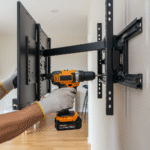In today’s fast-paced, tech-driven world, launching a product successfully is more than just a marketing effort; it requires meticulous planning, precise engineering, and a deep understanding of the hardware that drives the product’s functionality. A major aspect that often gets overlooked is the critical role of hardware engineering services in the product development lifecycle. Whether you’re designing the next wearables, smart home devices, or industrial IoT systems, the quality of your hardware engineering can make or break your product’s success.
According to Deloitte, over 80% of new product innovations in industries like consumer electronics, automotive, and healthcare are driven by advancements in hardware technologies. Moreover, research from Statista shows that the global IoT market size is expected to reach USD 1.1 trillion by 2026, highlighting the growing demand for IoT hardware development. For businesses aiming to capitalize on this trend, understanding the importance of expert hardware engineering services is crucial.
This article explores why hardware engineering services are indispensable for successful product launches, providing insights into key technical aspects, benefits, and how partnering with an IoT hardware development company can ensure smooth product development and a successful market entry.
The Importance of Hardware Engineering Services
What is Hardware Engineering?
At its core, hardware engineering focuses on designing, developing, and testing physical devices and components, such as sensors, processors, memory units, and circuit boards. In the context of product development, hardware engineering ensures that all components work seamlessly together to form a reliable, functional, and cost-effective product.
Hardware engineering encompasses various tasks, such as:
- Designing circuit boards that connect and control various components.
- Integrating sensors and actuators into physical devices for monitoring or control functions.
- Prototyping and testing to verify that the hardware meets the required specifications.
- Ensuring compatibility between hardware and software in IoT devices.
- Optimizing performance, energy consumption, and cost efficiency.
Why Businesses Need Expert Hardware Engineering Services
1. Ensuring Functional and Reliable Product Design
When launching a new product, functionality is key. A product that doesn’t work as intended can lead to customer dissatisfaction and brand damage. This is where expert hardware engineering services come in.
Hardware engineers ensure that every component, from sensors to microchips, is designed to function as part of a cohesive system. They validate that the product will perform optimally under various conditions, ensuring reliability in both the short and long term.
For example, IoT devices often face unique challenges like low power consumption, wireless communication, and integration with cloud-based systems. An IoT hardware development company brings the experience and technical expertise to ensure that your hardware can meet these challenges while remaining efficient and cost-effective.
2. Reducing Time to Market
Product development is often constrained by tight timelines, and delays can have a significant financial impact. Expert hardware engineers can help reduce development time by leveraging proven design methodologies, advanced prototyping tools, and simulation technologies.
By using rapid prototyping techniques, hardware engineers can create functional models of your product quickly. This allows businesses to identify potential design flaws early and make necessary adjustments before committing to large-scale production, ultimately speeding up the process from concept to market.
3. Minimizing Production Costs
Cost efficiency is one of the most important factors in the success of a product. Expert hardware engineers can help businesses reduce production costs by selecting the most suitable materials, components, and manufacturing processes. They also evaluate factors like energy efficiency and scalability, ensuring that your hardware solution doesn’t just work but works in the most cost-effective manner possible.
By working with an IoT hardware development company, you gain access to specialized knowledge that helps you avoid common pitfalls that lead to unnecessary expenses. This ensures that your product is not only functional but also affordable to produce, which is crucial for staying competitive in the market.
4. Complying with Industry Standards and Regulations
Most industries are governed by strict regulations that ensure product safety, environmental responsibility, and quality. Failing to comply with these standards can result in costly fines, product recalls, and brand damage.
Hardware engineers are well-versed in industry-specific regulations and standards. They ensure that your product meets compliance requirements from the very beginning. This includes everything from electromagnetic interference (EMI) standards to safety certifications such as CE or UL. Working with experts can save you from delays and costly setbacks when it comes time for regulatory approvals.
5. Mitigating Risk and Improving Product Longevity
In hardware design, durability and longevity are critical factors. A poorly designed component can lead to premature failure, putting your product at risk and causing reputational harm. Expert hardware engineers perform thorough testing to ensure that the product can withstand environmental stresses like temperature extremes, moisture, and physical impacts.
Moreover, hardware engineers help businesses build products with future scalability in mind. By considering upgrades, replacement parts, and software compatibility early in the design process, they ensure that the product remains functional and valuable long after its initial release.
Key Aspects of Hardware Engineering Services
1. Product Prototyping and Design
The initial stages of product development involve ideation, design, and prototyping. Hardware engineers work to create the first working model of your product. They design printed circuit boards (PCBs), integrate chips, sensors, and other components, and create a prototype that simulates the final product’s performance.
Prototypes are critical as they allow businesses to:
- Test the product’s physical form and functionality.
- Identify issues in the design or materials used.
- Collect user feedback for further refinement.
2. Embedded Systems and Firmware Development
Many modern products, especially in the IoT space, rely heavily on embedded systems and firmware. Embedded systems are the heart of IoT devices, running the necessary software that makes the hardware functional. Expert engineers ensure that the firmware is designed to work harmoniously with the hardware.
This includes:
- Writing code to control the hardware.
- Ensuring communication protocols are supported (e.g., Wi-Fi, Bluetooth).
- Optimizing the embedded systems for low power consumption and real-time performance.
Also Read: IoT in Hospitality: How Smart Devices Are Enhancing Guest Experiences
3. Testing and Quality Assurance
Once the hardware is designed, it must be rigorously tested to ensure it functions as intended under different conditions. This includes functional testing, stress testing, and performance testing. Expert engineers not only identify flaws but also optimize hardware components to reduce energy consumption and improve overall system performance.
4. Manufacturing Support and Scaling
After successful testing, the next step is moving to mass production. Expert hardware engineers assist with selecting the right manufacturing partners and processes. They ensure that the hardware design is scalable, cost-effective, and manufacturable in large quantities while maintaining quality standards.
5. Post-Launch Support and Iteration
Even after the product launches, hardware engineering services continue to add value. Engineers monitor product performance and provide necessary updates, whether it’s firmware updates, component upgrades, or addressing hardware-related issues that arise after deployment.
How Partnering with an IoT Hardware Development Company Helps
When developing a product, particularly one that involves complex IoT solutions, partnering with an IoT hardware development company can significantly increase the chances of success. These companies bring a wealth of specialized knowledge and experience, particularly in the areas of:
- IoT hardware design and integration.
- Wireless communication protocols (e.g., Bluetooth, Zigbee, Wi-Fi).
- Low-power devices for portable or battery-powered products.
- Security features to safeguard IoT devices from cyber threats.
By working with an experienced IoT hardware development company, businesses can take advantage of cutting-edge technology and best practices that ensure their product is not only functional but also innovative and competitive in the market.
Conclusion
In today’s competitive landscape, businesses that aim to launch successful products need more than just a great idea. They need expert hardware engineering services to ensure that their products are reliable, cost-efficient, compliant, and scalable. Whether you’re working on consumer electronics, industrial IoT solutions, or wearables, partnering with an experienced IoT hardware development company can help you navigate the complexities of hardware design, reduce risks, and achieve a smoother product launch.
Investing in high-quality hardware engineering services pays off in the long run by improving product performance, reducing costs, and ensuring that the product meets customer expectations. The right hardware engineering team can be the difference between a successful launch and a product that fails to meet market demands.








